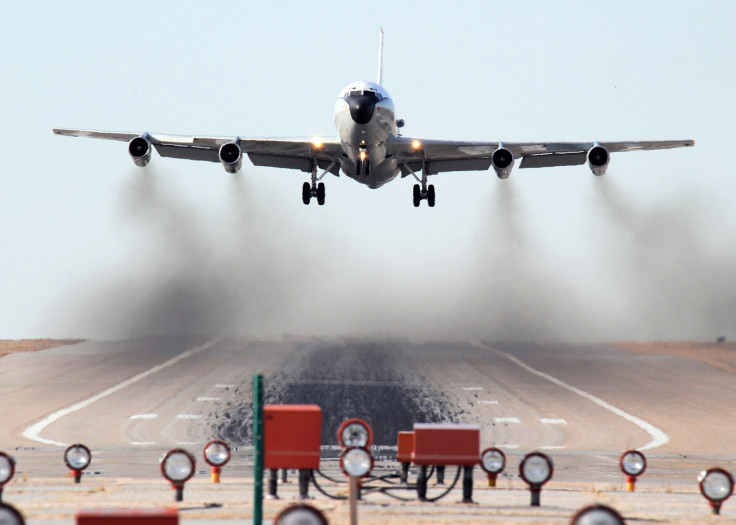US 'nuclear sniffer' plane deployed to Europe amid radiation spike
A spike in radiation levels was recorded across Europe in January.

A US "nuclear sniffer" plane has been sent to Europe after reports of a mysterious radiation spike across the continent.
The US Air Force WC-135 Constant Phoenix was deployed to RAF Mildenhall in Surrey last week, and flew on Wednesday (22 February) for a mission over Norway and the Barents Sea, according to flight-tracking websites.
It follows an increase in the levels of radioactive Iodine-131 detected across Europe in January.
The WC-135C is fitted with detectors allowing it to record radiation levels in the atmosphere. The plane can detect and identify nuclear explosions from the air and is used to track radiation levels after nuclear incidents such as the 1986 Chernobyl disaster.
The spike was first detected in Norway, and subsequently in Finland, Poland, Czech Republic, Germany, France and Spain, with the source of the radiation leak a mystery. Officials said the level of radiation was so low it did not pose a risk to human health, and levels have since returned to normal.
Some have speculated that the source of the radiation may have been a secret Russian nuclear test in the Arctic Circle, however, experts believe the absence of other types of radioactive particle points to a different explanation, and the leak may emanate from a pharmaceuticals factory.
Astrid Liland, head emergency preparedness at Norway's radiation protection agency NRPA, told Vice's Motherboard: "Since only Iodine-131 was measured, and no other radioactive substances, we think it originates from a pharmaceutical company producing radioactive drugs. Iodine-131 is used for treatment of cancer."
A US air force spokesperson told the Independent the aircraft is in Europe "on a preplanned rotational deployment scheduled far in advance," adding: "anything contrary is completely baseless."
"The WC-135 routinely conducts worldwide missions and we are not going to get into further details," they said.
© Copyright IBTimes 2025. All rights reserved.





















